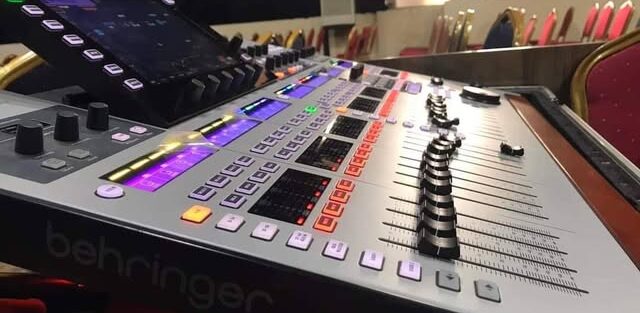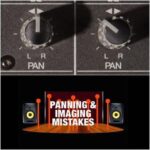Mastering the Art of Soundcheck: A Guide for Worship Teams
Soundcheck can be one of the most productive times of your weekend or the most frustrating. I’ve seen mild-mannered musicians and engineers turn into frustrated warriors when soundcheck goes off the rails. My brothers and sisters, it should not be this way.
As I travel and assist more churches with their weekend sound challenges, I’m often surprised at how many teams dive straight into rehearsal with no preparation leading to three hours of non-stop monitor changes and stress. Let me suggest: there’s a better way.
Soundcheck can be efficient, productive, and yes even fun with a little intentional planning. Because every church setup is different, I won’t prescribe a one-size-fits-all process. Instead, here are a series of principles you can adapt to create a soundcheck system that works for your team.
1. Start With a Line Check
Few things frustrate musicians more than stopping soundcheck to troubleshoot a bad cable, DI, or patch. Before the band arrives, line check every single input — even if it’s the same cable in the same channel from last week.
Check for:
- Phantom power on active DIs
- Wireless mics powered on and functioning
- All signal paths passing clean audio
This small step saves big time.
2. Declare Your Intentions
A few minutes before soundcheck, step up and communicate clearly. Try something like:
“Hey team! We’ll begin soundcheck in two minutes. Please plug in, get into place, and have your ears in. Let’s be ready to roll.”
Then, once you begin:
“We’ll go through each channel one at a time to set levels. Once your level is stable, go ahead and set it in your ears. Please hold all other instruments while we call out one at a time — that’ll make things faster for everyone. Let’s start with the kick drum.”
Clear direction helps keep everyone focused and eliminates guesswork.
3. Stay Organized
Some engineers start from the bottom up (drums and bass), others go top-down (vocals first). Either is fine, what matters is that you stay consistent and logical.
For example:
- Kick
- Snare
- Hi-hat
- Toms
- Overheads
- Bass
- Keys
- Guitars
- Tracks
- Vocals
Establish this order with your worship leader ahead of time, and use the same sequence weekly so the team knows what to expect.
4. Dial In the Drums Efficiently
Over the years, I’ve refined how I check drums:
- Start with kick
- Add snare balance with kick
- Bring in hi-hat
- Toms: ask the drummer to hit high, mid, low in sequence until balanced
- Quick pass on cymbals
- Finally, ask for a full groove to adjust overall blend
This method gets the drum mix tight without wasting time.
5. Work Quickly, Focus on the Big Picture
Your goal is to get basic levels and balance set not to perfect every EQ and compressor setting.
- Rough in EQ, gates, and comps as needed
- Avoid 15-minute snare sessions (we’ve all been there)
- Save deep tweaks for post-rehearsal adjustments
If you only have 30 minutes and spend 25 on drums, the rest of the band won’t get what they need. Be efficient. Keep moving.
6. Pre-Build Monitor Mixes
Whether you’re running monitors from FOH or using personal mixers, start building mixes ahead of time.
- Use previous week’s mixes as a reference
- Start lower than you think and work up
- Give vocalists and musicians something to hear as soon as they plug in, it makes a huge difference
You’ll spend less time chasing monitor changes and more time rehearsing.
7. Get the Vocals to Actually Sing
Nothing kills momentum like a vocalist mumbling, “Check one, two… testing… haashii…”
Instead, have all vocalists sing a full chorus while you set gains. Let the piano or guitar play lightly for pitch if needed, but otherwise keep the room clear.
We tell our vocal team:
“Don’t worry about your mix yet just sing. We’ll loop the chorus until we have your level set.”
It’s faster, clearer, and more productive.
8. Preparation Is Everything
The start of soundcheck is not the time to start labeling your console or fixing cables. By the time the band sets up:
- Your board should be labeled
- Inputs line-checked
- Rough monitor mixes built
- Gains preset if possible
We consistently finished soundcheck in 20–25 minutes with a full band and multiple vocal mixes because of prep. It doesn’t have to be painful.
Soundcheck success comes down to a few key things:
- Be prepared
- Stay organized
- Communicate clearly
- Respect your team’s time
When the technical side runs smoothly, creativity and worship flourish.
Thanks for reading and as always, remember to keep the creativity perfected.
Courtesy: House of Worship Sound Tech Team




